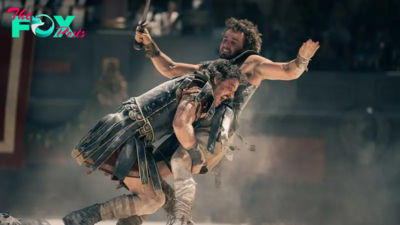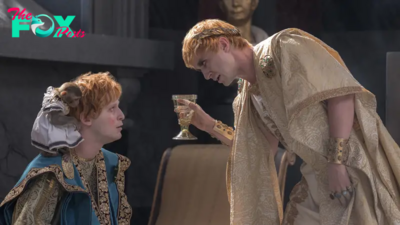Entertainment
HBO’s The Penguin Is a Stylish, Dumbed-Down Trump Allegory That Speaks to TV’s Decline
If you want to understand how prestige TV (an imperfect term, but bear with me) has changed over the last 25 years, it makes sense to start with the series that invented the category as we know it: The Sopranos. An HBO gangster drama whose antihero, Tony Soprano, is a brutal but troubled mid-level Mafioso with limitless ambition and debilitating maternal issues, it delivered all of the violent thrills typical of its genre. What elevated the show, which premiered in 1999, were cinematic production values, brilliant performances, a perfectly calibrated tone that offset darkness with humor, and creator David Chase’s stark examination of Tony’s psychology, the Sopranos as a family unit, and the state of the American dream on the eve of the 21st century.
Twenty-five years later, another highly anticipated gangster drama is set to debut. Premiering Sept. 19, The Penguin can also fairly be described as an HBO gangster drama whose antihero is a brutal but troubled mid-level Mafioso with limitless ambition and debilitating maternal issues. Like The Sopranos, it features immersive production design and noteworthy acting. Criminal psychology, family dynamics, and the American dream are among its chief preoccupations; the shows share a pessimism about these topics that felt revelatory at the turn of the century. But the similarities end there. Even when you account for the fact that The Sopranos was an irreplicable masterpiece, The Penguin is a dumbed-down disappointment that speaks to an industry-wide decline in what we, coNFLating quality with branding, call prestige TV.
One big difference between the two series is, of course, that The Penguin extends an extraordinarily bankable franchise—Batman—within HBO parent Warner Bros. Discovery’s superhero empire, the DC Universe. In showrunner Lauren LeFranc’s (Agents of S.H.I.E.L.D.) even-bleaker-than-usual Gotham, the unhinged Riddler has just blown up the city’s seawall on the night of a mayoral election. The residents of an impoverished neighborhood, Crown Point, have been hit hardest, with casualties mounting and entire apartment buildings destroyed. And amid the chaos, someone has assassinated the powerful crime boss Carmine Falcone.
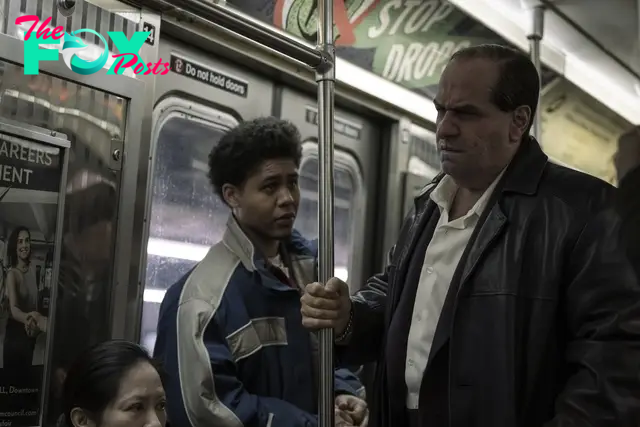
Played by executive producer and certified movie star Colin Farrell—who first rendered himself unrecognizable for the role with a fat suit, facial prosthetics, and a cartoonish working-class “New Yoik” accent in The Batman—Oz “The Penguin” Cobb is determined to take advantage of this flux. In a tense encounter, Carmine’s drug-addled son and successor, Alberto (Michael Zegen), condescends to Oz, calling him a “good soldier” and declaring: “You are who you are, and you couldn’t change if you tried.” He doesn’t know how right he is. When the chat takes a turn and Alberto calls him a “little bitch,” Oz calmly fires four shots into the new king of Gotham’s underworld. Then he chuckles madly to himself, like any good comic-book villain would.
The murder is our slimy protagonist’s thin-skinned response to Alberto mocking a moment of apparent vulnerability on the Penguin’s part. Oz lays out his vision of gangster ethics, praising the “real old-school type” who ran the poor neighborhood where he grew up: “He helped people. When someone in your family was sick, he’d find you a doctor. Short on rent? He’d front you the cash. Knew everyone’s names, too. I don’t know how he kept ‘em all in his head, but if he saw you on the street, he’d call out to you. Ask how you were. It felt like he meant it, too.” When the man died, his neighbors threw a memorial parade. The monologue is pure Tony Soprano, wistful for an idealized past when a violent criminal could still be a pillar of the community.
Yes, like Tony, Oz hypocritically professes that, for all the blood he spills trying to claw his way to the top of Gotham’s drug trade, he has principles. The Penguin is not subtle on this (or any other) point. “I do got a f-ckin’ code!” he insists, later in the series, in an attempt to convince an assemblage of small-time bosses to unite under his leadership. Other evidence of his magnanimity comes when he takes under his wing a recently orphaned Crown Point teen, Victor Aguilar (Rhenzy Feliz), whom he catches trying to jack the hubcaps off his garish purple-and-gold car. And in a Sopranos parallel so obvious, it must be a callback, Oz has a demanding, dementia-afflicted battle-axe of an elderly mother, Francis (Deirdre O'Connell), waiting impatiently in a drab suburban house for her boy to make something of himself and give her the penthouse-dwelling Gotham high life she has always craved. Chase didn’t need to give Tony and his mom’s relationship incestuous overtones to convey its toxicity, but for LeFranc, this element serves as a handy shortcut to creating the same impression.
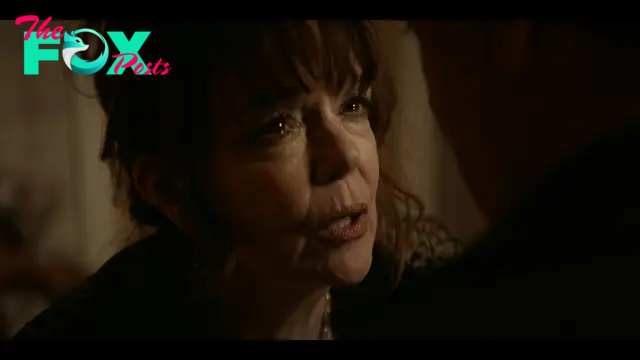
As the Penguin engineers his rise, playing what's left of the Falcones against their rivals the Maroneys in a dangerous double-agent gambit designed to give himself sole control of a new drug dubbed bliss, Alberto’s sister Sofia (Cristin Milioti) becomes his main foil. Fresh out of Arkham Asylum, Sofia is nursing a grudge against the male associates who put her there in an attempt to keep this smart, comPetent woman from ascending to her rightful place at the head of the family. Despite her mistrust of Oz, who was once her driver, her isolation among the Falcones makes her vulnerable to his manipulations. With Farrell operating at such a physical handicap he might as well be playing Grimace, Milioti’s back-against-the-wall performance becomes the clear standout. But for too long her character arc, which wrings female empowerment out of female trauma, is a simplistic one that we’ve seen too many times before.
As for Oz himself, if you guessed that he’s an alternate-reality avatar for Donald Trump, well, ding ding ding ding ding. While The Sopranos perceptively presaged a bad end to the American Century, capturing an inchoate mood of decline more than two years before 9/11, The Penguin presents yet another uNFLattering portrait of a man whose archetype has haunted TV and film since his first presidential run. Fueled by his own well-founded insecurities, Oz’s demagoguery is on full display in his theatrical appeals to the downtrodden and aggrieved, from Vic and Sofia to the working-class gangsters who loathe wealthy elites like the Falcones and the Maroneys even more than they hate each other. “The real power,” he promises would-be supporters put off by his treacherous reputation, “comes if we got each other’s backs.”
The Penguin is always giving speeches like this, laying out his worldview for easy consumption by viewers who might spend most episodes scrolling on their phones as the audio washes over them. “You still think there’s good and bad, right and wrong?” he sneers at Vic. “There ain’t. There’s just this: survival. Security. Pleasure. They don’t give out awards for dying in the projects.” The rePetition, within the show as well as of TV’s fascination with Trumpian villains (see: Scandal's Hollis Doyle, A Man in Full's Charlie Croker, Kate Winslet in The Regime), can be maddening. (In this case, the Trump comparison is undercut by Oz’s rise from poverty. Robbed of the former President's nihilism, his arc just makes too much sense.) In a letter to critics, LeFranc acknowledged that she struggled over why viewers might want to see more of this archetype, before fretting about the future of her two young sons and asking herself: “Are bad men born? Or are they made…?” The thing is, The Penguin never persuasively answers that question. And a decade’s worth of armchair analysis of the former President started yielding diminishing returns long before he left office.
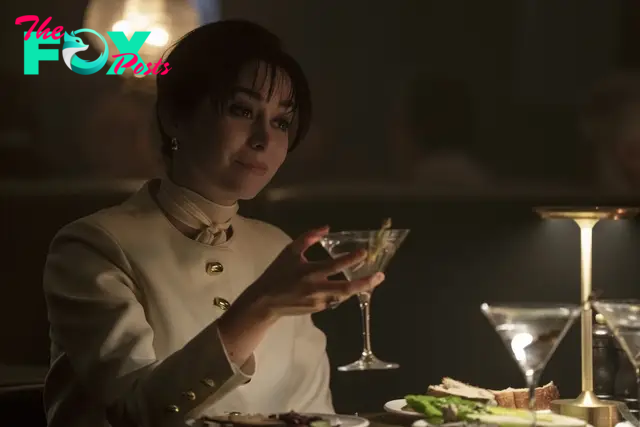
At its best, The Penguin is an effective reminder to believe people when they tell us who they are. Milioti’s performance and agile, noir-tinged directing from talented collaborators like filMMAker Craig Zobel (Z for Zachariah, Compliance) and TV veteran Helen Shaver (Station Eleven, Maid) aside, its greatest asset is the utter ferocity of LeFranc’s finale. But without the moral nuance that made The Sopranos so ripe for rumination and debate, getting there is a slog, weighed down by broad characters spewing comic-book dialogue. The miniseries’ final moments could’ve had a much greater impact at the end of a feature film that wasn’t forced to fill 10 hours of screen time by staging dozens of gratuitous set pieces, playing out too many unnecessary plot twists, and, in ways both figurative and literal, repeating itself.
That’s TV amid the revenue-starved, post-streaming-wars landscape of 2024, though. Too often what makes it to our screens, even in the high-gloss guise of prestige programming, isn’t a triumph of intelligent, boundary-exploding storytelling. It’s there because executives can bank on it keeping subscribers on their platform for full weekends at a time by virtue of big-name actors or familiar IP or the all-ages accessibility of scripts written with precisely zero subtext. (When I spoke with Chase in late 2023, he lamented the sense within the TV industry today that “there’s a lack of interest… in psychology, ambiguity, spirituality.”) The Penguin isn’t, by any stretch of the imagination, the worst new show of the fall season. At least it has some style, some point of view, something to say, no matter how trite. (Have you watched Fox’s umpteenth budget-friendly adult animation series, Universal Basic Guys? Good—don’t.) But in its mediocrity, it is as great an indictment of a medium in decline as the stupidest schlock the networks have to offer.
-
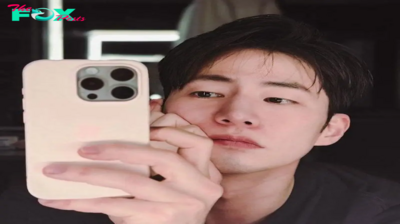
 Entertainment2h ago
Entertainment2h agoRemembering Song Jae-rim: A Look at His Best Movies and K-Drama Performances
-

 Entertainment12h ago
Entertainment12h agoAmerica On CoffeeWe’re simply inviting you to take a timeout into the rhythmic ambiance of our breakfast, brunch and/or espresso alternatives. We’re pleased everytime you cease by.SELF CONTROL
-

 Entertainment14h ago
Entertainment14h agoOrange County Choppers Is Ready For Its Big Comeback
-

 Entertainment19h ago
Entertainment19h agoSki Area Officially Opens the Ski Season For New York
-
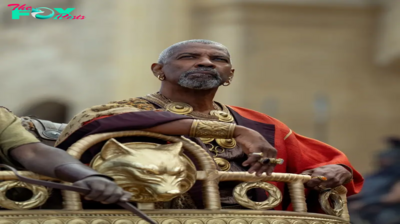
 Entertainment23h ago
Entertainment23h agoGladiator II Belongs to Denzel
-
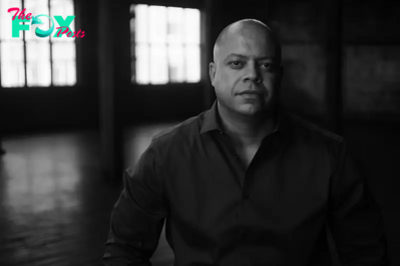
 Entertainment23h ago
Entertainment23h agoJJ Velazquez on Finding Freedom, From Sing Sing to Sing Sing
-
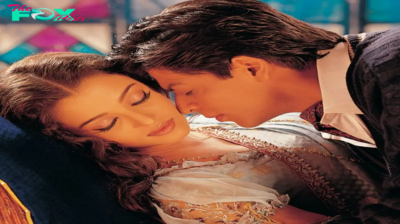
 Entertainment1d ago
Entertainment1d ago13 Most Romantic Movies Based on Novels
-
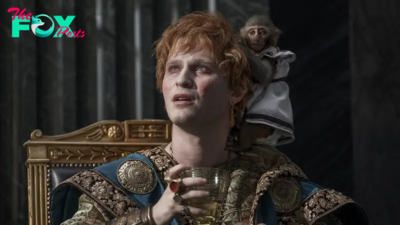
 Entertainment1d ago
Entertainment1d agoThe Monkey Is the Secret Hero of Gladiator II
